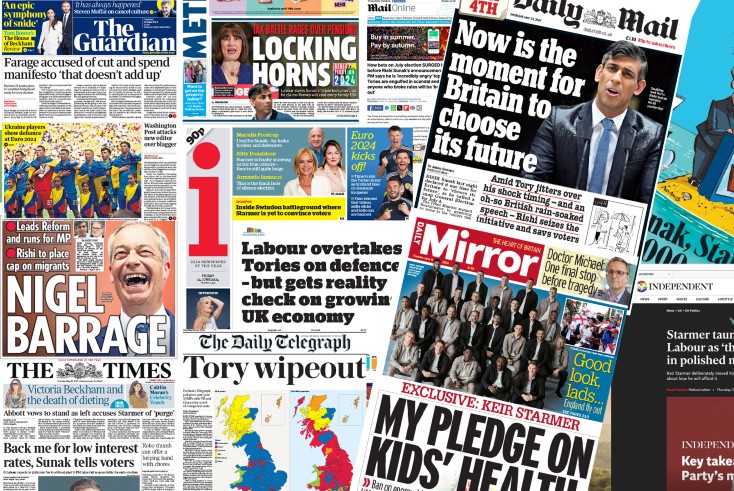Young voters most likely to say they’ve seen election misinformation


More than half of voters (55%) have seen or think they have seen fake news and misinformation since prime minister Rishi Sunak called the snap election on 4 July.
This figure rises to 73% among 18- to 24-year-olds. Among that younger cohort, nearly half (45%) said they are using election coverage from reputable sources of news to help them make up their mind on who to vote for on Thursday, with 32% reporting their voting decision has changed based on information from news journalists.
These findings were from a survey commissioned by news brand marketing body Newsworks.
They underpin the importance of trusted news during an election period and the concern felt by the public around misinformation and disinformation.
Nearly half (43%) of voters surveyed said they believe journalism is more important now than in previous general elections.
In particular, younger (18-24) voters are viewing journalism in a more important light (65%). Newsworks CEO Jo Allan called this finding “most encouraging”.
Meanwhile, 28% claimed to consume more news from traditional news sources (print and online outlets, TV and radio) since the election was announced. In comparison just 11% said they were consuming less news over the same time period.
Notably, the survey found that Brits are more than twice as likely to say they trust news brands over social media platforms.
The key roles for news organisations amid the election period, according to voters, include fact-checking and correcting misinformation (64%), informing the public of candidates’ policies (62%), challenging politicians on their statements and actions (60%) and holding politicians to account (58%).
Indeed, six in 10 respondents claimed they fact-check information they have seen or heard elsewhere by going to news brands, TV or radio as trusted sources of information.
“These results show the significant role quality, trusted journalism plays at such an important time for the country and against the backdrop and pervasive spread of fake news, misinformation and disinformation,” continued Allan. “Professionately crafted journalism helps to guide and inform readers, while challenging and holding politicians to account on behalf of those readers.”
The survey was conducted by market research company OnePoll during 14-18 June, with a nationally representative sample of 2,000 Brits taking part.
